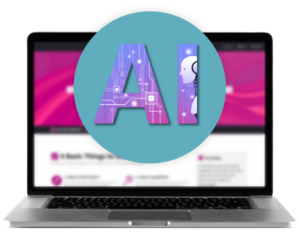“GenAI for Customer Support” is an ongoing series. It highlights the trends and potential use cases of generative AI technology in improving customer service metrics. This is the second post in this series.”
The customer service and support (CSS) industry is rapidly changing, and businesses need to keep up. The pressure is on full blast for support teams. So why is now the time to integrate Generative AI (GenAI) tools into your CSS workflow?
In 4 Customer Service & Support Trends in 2024, we saw that businesses are budgeting for AI-powered support systems. In fact, over 80% of customer care leaders are already investing in this technology or expecting to do so this year.
Companies are facing rising customer expectations, heightened case volumes, increased support costs, and growing product complexity. Therefore, it’s no wonder businesses are investing in next-gen technology to enhance their customer care teams. A system as versatile as GenAI is perfectly suited to tackle these challenges. But how exactly should companies put this innovation into action?
To resolve your lingering questions, we’ve outlined three concrete GenAI use cases to implement into your support operations. We follow this with five measurable benefits your team will reap from this upgrade.
What is Generative AI?
Let’s start with a mutual understanding of this buzzword technology. GenAI refers to the use of Large Language Models (LLMs) to generate high-quality content autonomously. This includes text, images, audio, code, and more. Examples of such LLMs include OpenAI’s GPT and Google’s Gemini. They excel in tasks such as content creation or transformation, conversational assistance, and language translation.
At this point, you may be wondering how GenAI and AI are different. AI, or Artificial Intelligence, encompasses a broader range of technologies and techniques aimed at simulating human intelligence in machines. This includes not only generative AI but also other subfields such as machine learning, natural language processing, computer vision, and robotics. AI systems can be designed to perform a wide variety of tasks. This includes data analysis, decision making, problem-solving, and automation, across various domains.
Generative AI, leveraging its capacity to understand context and produce human-like responses, emerges as a powerful asset in unraveling the nuances of customer intent. This ability makes it an invaluable tool for enhancing customer support experiences.
The Top 3 Use Cases of Generative AI for Customer Support
Companies agree that the potential of GenAI is high. However, many leaders don’t know where to target their investment into this technology to maximize ROI. We’ve identified three top use cases for customer support to get you started.
#1- Simplifying Self-Service with GenAI Question Answering
Customers typically don’t want to reach out for support. They want to solve their issues as soon as possible without having to wait for a support agent to become available. For simple issues, 61% of customers prefer to use self-service support channels.
Companies have therefore implemented customer-facing tools like portals, help desks, and in-product support to answer clients’ queries. With these solutions, customers must test different keywords and navigate documents to find answers, like browsing website pages or examining Google search results. However, this is time-consuming. Customers become frustrated while looking for quick and easy answers. As a result, the probability increases that they will open a case to receive further assistance.
With GenAI Question Answering, users gain the ability to ask questions and receive instant answers using natural language. First it leverages language models to understand the query. Then it searches the databases or knowledge bases for information. Finally, it delivers accurate and contextually relevant replies. Even if the terms used in the question and documentation are different, it understands the context, tone and intent behind the customer’s question and how words are semantically related to provide timely answers.
By implementing this technology into new interfaces like chatbots, customers gain access to a human-like smart personal assistant ready to provide relevant answers to any question in an instant. On top of that, the AI-enabled chatbot can maintain a back-and-forth dialogue with the customer by remembering and building off past questions, hence improving relevance.
#2- Augmented Support Agents
Customer support teams are often flooded with support tickets. Many of these tickets are simple, repetitive questions. As a result, most customer service agents end up creating their own knowledge bases filled with predefined answers to streamline the process.
Yet, when complex cases arise, their knowledge base is not enough. They need to search, read, search again, ask for expertise, and derive a proper answer from all the documentation collected from multiple sources. Agents with less experience inevitably need more time and assistance resulting in high resolution times.
By leveraging a combination of search technology and generative AI, companies can automate the process. Customer service tools enhanced with AI, have the capability to analyze customer inputs. Then, they automatically propose suitable responses which can be validated and fine-tuned by support agents to avoid GenAI hallucinations. Once the response is approved, all the agents have to do is click send. As a result, what would have taken an agent ten minutes now takes them two.
Note that this human-led step in the process is crucial for content governance so customers can trust what companies tell them.
#3- Instant translation
Companies with a global market presence face critical decisions regarding the extent of translation across languages, balancing costs and time constraints. As their client base goes global, support teams need to be able to cater to customers in a myriad of languages. Unfortunately, both documentation and agent support might be limited in the languages offered.
GenAI can swiftly and accurately translate incoming queries into the agent’s preferred language, enabling them to comprehend and respond effectively. It can even generate accurate responses in the customer’s language, ensuring clear communication and efficient resolution of inquiries.
GenAI can also translate a topic or a document on-demand in the language of your choice. With just a click, users can obtain accurate translations of their content. By combing through vast content repositories, it extracts and contextualizes essential terms for better translations, easing global communication and facilitating business transactions.
Although it may never completely replace human translators, AI is undeniably transforming the landscape of language translation, enhancing efficiency and accessibility for all.
5 Benefits of Generative AI for Customer Support
We’ve defined where to integrate GenAI technology and the concrete ways it will help your support teams. You may now be wondering if it’s worth it to be one of the early adopters of this technology. You’re not alone; 61% of CSS leaders feel pressure from executives to adopt GenAI technology but are unsure of how these use cases will impact their KPIs. The benefits are clear.
#1- Speed up Time to Resolution
Time to resolution is the average time it takes between when a customer ticket is created and when it is marked as resolved. It is also referred to as Mean Time to Resolution (MTTR) or Time to Resolve (TTR). This customer support metric, usually defined in the Service Level Agreement and therefore legally binding, is a critical part of service. That’s because customer satisfaction is greatly influenced — both positively and negatively — by how long it takes to get the right answer. With access to your technical content, GenAI can instantly scan dozens of pages of precisely retrieved documentation to extract the right information and formulate a clear and concise response. As a result, this technology allows your teams to automate responses securely for your customer cases and cut ticket handling time by 25 – 50%.
#2- Reduce Support Costs
The rise in omnichannel customer support has increased the strain on already-tightening budgets. Companies continue to look for ways to control spending, with 37% naming support costs as one of their key priorities this year.
One of the easiest ways to cut expenses without sacrificing the customer experience is by empowering users to access the answers to any question quickly and with thorough documentation. GenAI-based tools provide effective support by instantly generating personalized and contextualized responses for each user based on the product documentation. This results in higher ticket deflection and higher first contact resolution rates. These two improvements reduce support costs.
#3- 24/7 Support
Simply scaling your team and increasing the number of hours they work to have 24/7 support coverage can increase business costs by 60%-100%. It’s no longer a pipe dream to be able to provide round-the-clock support, ensuring instant customer assistance without a surge in costs or letting your team burn out.
As a machine, GenAI is constantly ready to spring into action. Once this technology is implemented into your chatbots, self-service portals, and knowledge bases, customers can ask questions anytime, regardless of time zone. This nonstop support with immediate, comprehensive responses is essential for meeting and exceeding customer expectations in today’s digital-first environment.

#4- Improve Customer Satisfaction
Gone are the days of accepting the dreaded “please hold” followed by 15 minutes of repetitive elevator music. Customers want quick, accurate answers to any question at any time and via the channel of their choice. Yet, the path to customer satisfaction is becoming increasingly complicated with omnichannel support. In fact, B2B buyers use about 10 channels on average when engaging with companies and expect fluid, consistent interactions across channels.
GenAI makes boosting customer satisfaction easier than ever. From chatbot question-answering to augmented support agents and self-service portals, customer queries are met with clear, comprehensive answers. It also replies in any language and with links to the relevant documentation. This technology’s ability to identify customer intent, predict user needs, and provide personalized and contextualized suggestions in no time is the perfect combination for creating a positive customer experience.
#5- Multi-Language Support
Expanding business internationally is great for sales! What’s less great is when your customers can’t access the tools and resources they need in languages they understand. Even if your knowledge base content is only available in certain languages, GenAI can read content in one language, then provide a response in the user’s preferred language. Access to documentation is no longer limited to the languages that a team pre-translates it into. Your platform should translate any product documentation and support responses on-the-fly whether the customer is reading FAQs and knowledge content, a chatbot reply, or the email from your help desk team. This ensures seamless comprehension for every user and positive experiences for customers in any language.
Charting the course:
Moving from Ideation to Execution
Generative AI tools for customer support are taking over. 70% of customer experience leaders report that they reevaluated their company’s whole customer experience journey due to the hype and concrete benefits of this technology. It’s no wonder seeing as GenAI can combine the power of LLMs and the product-specific information of your knowledge center to provide actionable, contextualized insights to all customer and support staff questions. Together, this provides immense support for customer service agents and enhances the customer experience.
With these use cases and benefits in mind, the next step is choosing a solution that fits your needs. Discover how a trusted GenAI-enabled Content Delivery Platform like Fluid Topics can cover these needs. It transforms your product content from any source and format into a unified knowledge center that delivers accurate, reliable, and up-to-date product answers. The platform does this all while ensuring that the use of GenAI tools aligns with industry-specific regulations and compliance standards.
If you enjoyed this article, sign up for our monthly newsletter for more tips, insights, and the latest news around Generative AI for customer support.







